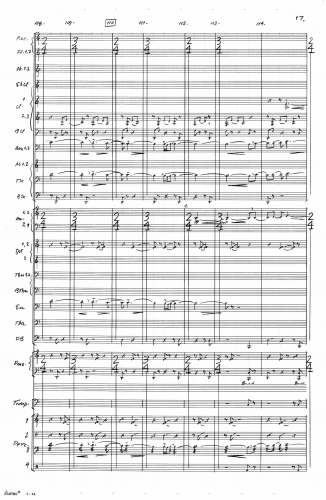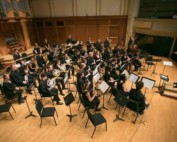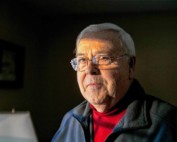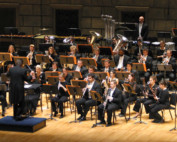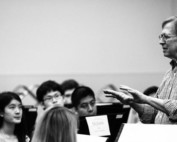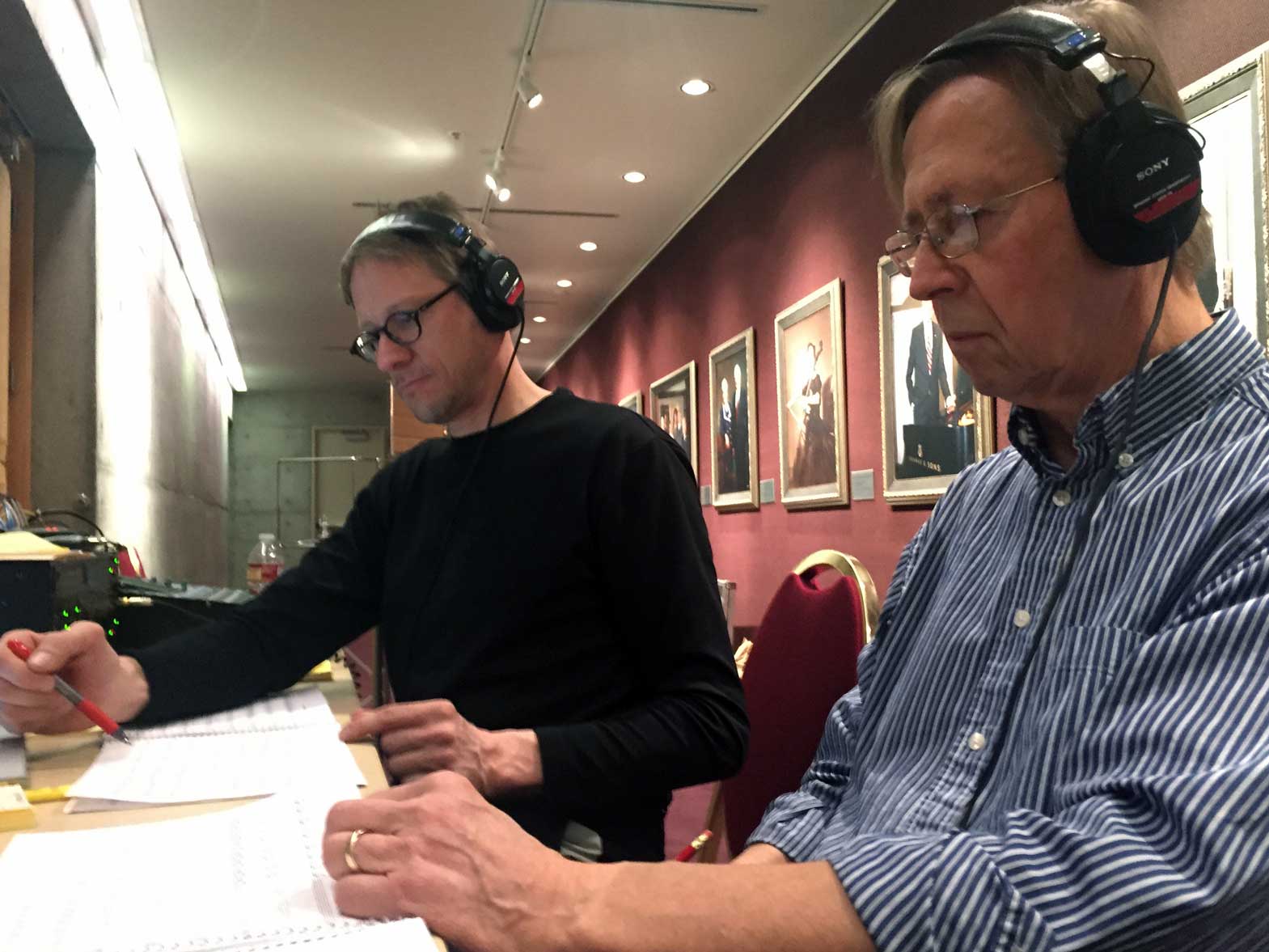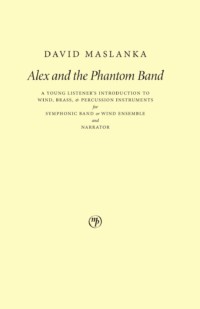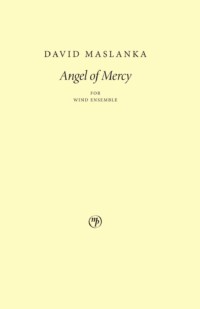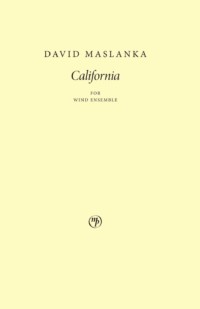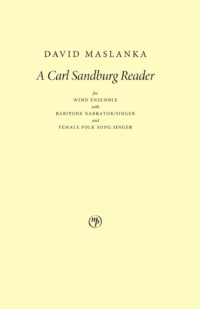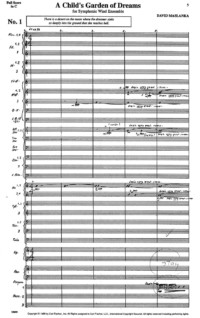Project Description
Wind Ensemble
1994
12 min.
Listen Now
University of Massachusetts at Amherst Wind Ensemble, Malcolm W. Rowell, Jr., cond.
On the album Symphonic Wind Music (1996)
Instrumentation
Picc Fl-2 Ob-2 EbCl BbCl-3 BCl Bsn-2 ASx-2 TSx BSx | Hn-4 Tpt-3 Tbn-2 BTbn Euph Tuba DB(opt*) | Pno(opt*) Timp Cel Perc-4
- Piccolo
- Flute (2)
- Oboe (2)
- Clarinet in E♭
- Clarinet in B♭ (3)
- Bass Clarinet in B♭
- Bassoon (2)
- Alto Saxophone (2)
- Tenor Saxophone
- Baritone Saxophone
- Horn in F (4)
- Trumpet in B♭ (3)
- Trombone (2)
- Bass Trombone
- Euphonium
- Tuba
- Double Bass (optional*)
- Piano (optional*)
- Timpani
- Celeste
- Required Percussion 4 players
- Tam-tam (2)
- Vibraphone (2)
- Glockenspiel (2)
- Xylophone (2)
- Suspended Cymbal (lg.)
- Crash Cymbal
- Temple Blocks
- Gong (2 sm., 3 med.)
- Marimba
- Chimes
- Tenor Drum
- Bass Drum (2)
- Triangle (sm.)
*Double Bass and Piano parts are fully covered, but do use these instruments if possible
Commission
Commissioned by the Wisconsin Chapter of the College Band Directors National Association
Completion
31 May 1994, Missoula, Montana
Program Note (1994)
The title “Tears” comes from my reading of the novel Monnew by the African writer Ahmadou Kourouma. His story tells of the dissolution of traditional African culture as Europeans overran it. The native peoples were made to endure the “monnew” – the insults, outrages, contempts, and humiliations – of colonialism.
Our tears will not be abundant enough to make a river, nor our cries of pain sharp enough to extinguish fires.
Program Note (2009)
The title “Tears” came from reading the novel Monnew by the African writer Ahmadou Kourouma. His story tells of the destruction of a traditional African culture by European colonization. The native peoples were made to endure the “monnew”, the insults, outrages, trials, contempts, and humiliations of colonialism. My reading of the book was the external motivation for composing the piece, but I don’t know anyone in Africa directly. I have come to understand that fascination with something in the external world means that a thing deep inside me has been touched. So the piece is about something in me. Over the years my music has acted as a predictor for me. It gives me advance non-verbal messages about things inside me that I don’t understand yet: movements of my unconscious that are working their way towards the light.
Tears finally is about inner-transformation, and about groping toward the voice of praise. St. Francis and St. Ignatius have said that the proper function of the human race is to sing praise. Tears is about inner breaking, and coming to terms with the pain that hinders the voice of praise. Tears is about the movement toward the heart of love.
Further Reading
Maslanka Weekly: Best of the Web – No. 109, Lawrence University Conservatory of Music
Maslanka Weekly highlights excellent performances of David Maslanka’s music from around the web. This week, we feature three ensembles from Lawrence University Conservatory of Music in performances of David's music: Symphony No. 4, Crown of Thorns, and Tears.
Maslanka Weekly: Best of the Web – No. 63, Malcolm W. Rowell, Jr.
Maslanka Weekly highlights excellent performances of David Maslanka’s music from around the web. This week, we feature three of David’s compositions that Malcolm W. Rowell, Jr. and the University of Massachusetts-Amherst Wind Ensemble championed: A Child's Garden of Dreams, Symphony No. 4, and Tears.
Maslanka Weekly: Best of the Web – No. 33, The Eastman Wind Ensemble
Maslanka Weekly highlights excellent performances of David Maslanka’s music from around the web. This week, we feature the Eastman Wind Ensemble in rousing performances of Symphony No. 8, Mvt. I, Tears, and Symphony No. 2.
David Maslanka: Works for Younger Wind Ensembles
Here are more than twenty works for wind ensemble, arranged in approximate ascending order of difficulty, with commentary by David Maslanka
Recording the Wind Ensemble Music of David Maslanka
Mark Morette of Mark Custom Recording shares his extensive experience in recording wind ensembles.
